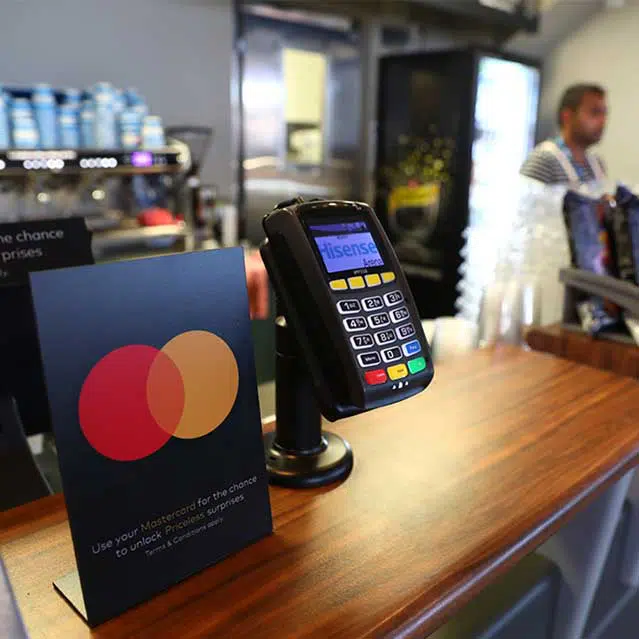With payments-industry competition rapidly getting more intense, long-established players such as Mastercard Inc. could lose out if they don’t change with the times. But Mastercard’s chief executive signaled Thursday that change is just what his company is doing.
“We stand ready to compete,” declared Michael Miebach during Mastercard’s second-quarter earnings call with stock analysts. “We will look for the opportunity. I’m sure we will find it.”
That comment came in reply to a question about Mastercard’s take on a new Federal Reserve ruling clarifying that debit card issuers must provide two unaffiliated network choices to merchants for transaction routing in online as well as card-present transactions. Many merchants had accused Mastercard and Visa Inc. of limiting their routing choices in online debit sales to those two networks, in violation of a major Fed regulation meant to assure routing choices to merchants.

Miebach said Mastercard met the Fed’s July deadline for making the required routing systems operational.
On Tuesday, Visa CEO Ryan McInerney replied in much the same fashion in response to a similar question during his company’s most recent earnings call. “We think that many merchants are going to still chose to route to Visa,” McInerney said. “It’s not just a cost-based decision.
Mastercard also stands ready to compete in the realm of faster payments, according to Miebach in reply to an analyst’s question about the company’s take on the Fed’s newly unveiled FedNow instant-payment service.
“We’re all monitoring what FedNow is doing,” Miebach said. But he noted that Mastercard is way ahead of the Fed in providing merchants as well as consumers with debit-related products.
“It (FedNow) doesn’t have features, it doesn’t have a consumer platform as such,” he said. “You can’t access it through your mobile-banking app. All of that is what our solution today provides.”
One industry Mastercard won’t be generating payment volume from any time soon is cannabis. Reports on the financial wires Wednesday said Mastercard has told the few financial institutions that serve marijuana merchants not to permit sales on its debit cards. Recreational pot sales are now legal in more than 20 states, but marijuana remains illegal on the federal level. Given the outsized federal role in bank regulation, the cannabis industry remains mostly cash-based, so card networks aren’t getting much volume from it. Proposals in Congress to explicitly permit banking services for marijuana dispensaries face an uphill climb.
Mastercard reported its worldwide gross domestic volume hit $2.27 trillion in the second quarter, up 12.5% from a year earlier on a local-currency basis. The company switched 35.5 billion transactions, a 17% increase from 30.4 billion transactions in 2022’s second quarter.
In the U.S., Mastercard tallied $293 billion in debit and prepaid purchase volume, up 3% from 2022’s second quarter. U.S. credit and charge card purchase volume grew 8.2% from a year earlier to hit $362 billion.
Mastercard reported $6.3 billion in second-quarter revenue and $2.8 billion in net income, up 15% and 26%, respectively, on a currency-neutral basis.




